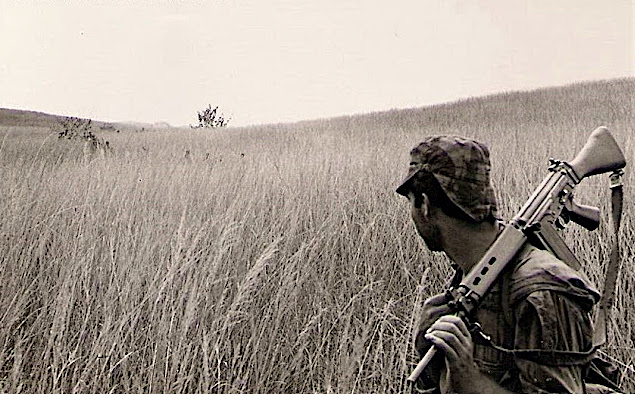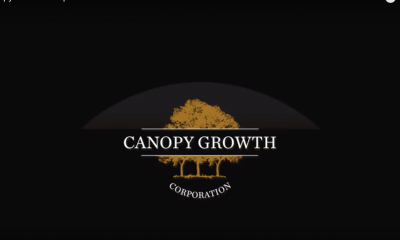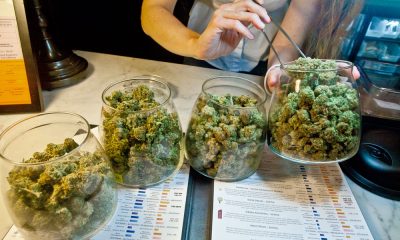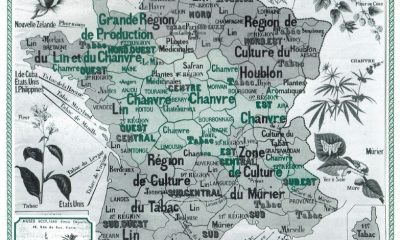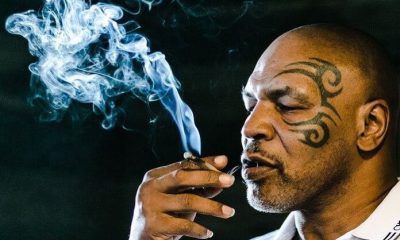In 2021 Vasco Gil Calado, an anthropologist and researcher at SICAD, published the book “Drogas em Combate, A Guerra Colonial”, the result of a thorough investigation for his PhD in Anthropology. In Portugal, practically all those who served in the military during the colonial war know that “liamba” is the same as cannabis, which today is an increasingly recurrent word in public opinion and in the media. But have those in the know used it? Likewise, it is already accepted that the arrival of liamba, or herb, in Portuguese territory took place with the flow of returnees after the independence of the former colonies. But was it really so?
Crossing historical sources and testimonies of former Portuguese soldiers involved in the Portuguese Colonial War, Vasco Gil Calado, a researcher in the area of Addictive Behaviors since 2001, achieves a perfect synthesis between scientific rigor and communication skills for the general public.

An unprecedented topic, difficult to address, marked by uncomfortable silences, but treated here without gratuitous generalizations, without moral judgments and in a profoundly human tone.
This is a pioneering and original book that, based on the topic of the consumption of psychoactive substances, such as cannabis and alcohol, in the context of the Colonial War, contains a tribute to the Portuguese military and their families, who were involved in the conflict. . A tribute to his pain and loneliness, but mostly to courage and his attachment to life.
Through the living matter of history, people, we embark on a journey to the hell of war, the agony of its infinite moments of emptiness and waiting for the tensions of combat. Along the way, we also crossed the obvious signs of a Portuguese counterculture that announced the desire for peace, freedom and hope.
We spoke with the author Vasco Gil Calado about the launch of his new book and we satisfied some of our curiosities on the topic of drugs in war.
Why is cannabis left out of the official history of the colonial war, when we know that liamba, as it was known in Angola, or suruma, in Mozambique, was not an unknown subject for many soldiers and even the PIDE and the leadership military?
It is necessary to realize that, for the impact it had on Portuguese society, the Colonial War has been very little studied, from any perspective. There was, for a long time, a kind of “conspiracy of silence”, in which no one was interested in the matter being debated or studied. More recently, things have changed a little, although the study has focused mainly on military aspects and also on the issue of memory and the traumatic dimension, leaving little space for other topics. The social history of the combatants (the dimension of the experience) is practically all to be done, including the study of everything that can be considered more delicate and controversial. This includes the issue of drugs, but also homosexuality, prostitution and all kinds of abuse that took place in the war, for example. As all these practices were silenced and poorly documented, their study is particularly complex and necessarily based on testimonies and biographical records, which makes the research process more time-consuming and winding. What makes the cannabis issue a delicate subject and invites silence is the weight that the drug issue has today, namely at a symbolic level, despite the fact that at the time the military who used cannabis had no idea of the prohibition, much less that they were do something illegal.
In general terms, what Portuguese soldiers were looking for with the use of cannabis, at a time when the Vietnam War was simultaneously taking place, which we end up getting to know much better through films such as “Platoon”, by Oliver Stone, where we see the soldiers Americans to smoke in everyday life and in chill out, in the famous scene where Sergeant Elias' group “baptizes” Private Taylor. Who were these Portuguese soldiers? Did your cannabis use continue in civilian life after the end of the war?
Based on the information I gathered, from interviews but not only, I concluded that the Portuguese military who smoked cannabis during the Colonial War did so mainly in a logic of self-medication, that is, as a way of controlling fear and reducing emotional tension. Smoking cannabis was intended to avoid getting out of control, in a scenario that invited despair and collapse. Apparently, cannabis use was a practice that, in the final phase of the conflict, around the beginning of the 70s, became more common in Portuguese barracks, namely among soldiers of local incorporation (that is, born in Africa) but also among senior military officers (ensigns and furries) coming from the then metropolis. It is difficult to trace a profile of the military who used cannabis in the Colonial War, but I would say that these were, above all, individuals whose connection to the military cause was less, with consumption tending to be greater where the situation was more difficult (both from the military point of view and in terms of isolation). As it is a markedly 'therapeutic' consumption, closely associated with the inherent pressure of a war scenario, it seems that most soldiers who used cannabis in the war abandoned consumption when they returned home. In fact, the same happened in the Vietnam War, a phenomenon that empirically supported new theoretical perspectives on drug use, namely the famous drug, set and setting theory.

Vasco Gil Calado, author of the book “Drogas em Combate” – Photo: DR
It is legitimate to say that cannabis in African territories, during the conflict, depending on the side of the war, functioned simultaneously either as a substance associated with leisure and an attempt to alienate Portuguese soldiers, or as on the side of the guerrillas of the liberation movements it became a “food”, to calm hunger, to increase resistance and to increase aggression? Or was this the official version of the Portuguese authorities?
I must emphasize that, due to time and resources limitations, I did not interview former soldiers of the liberation movements, so I stick to the Portuguese perspective. What I do know is that, as early as 1961, when the war started, cannabis use was seen as something that justifies the violence of the «indigenous» against the colonial power and serves as an explanation for acts considered «barbarous», namely the first UPA massacres. This, moreover, follows an old European tradition of looking at cannabis use as something harmful, which makes Africans in general and slaves in particular more violent and useless to work with. In this sense, its consumption was always frowned upon by the European colonial power and, at times, was even expressly prohibited. This is the view that prevails at the time when the first Portuguese go to fight for Africa. Nonetheless, as the conflict progressed, some soldiers came into contact with the plant, experimented with it, learned to consume it and to appreciate its “anxiolytic” effects., particularly useful in such a challenging context. And they came into contact with cannabis through African soldiers (namely blacks) incorporated into the ranks of the Portuguese army, who already knew the plant and its psychoactive potential, given that consumption is a centuries-old practice in certain regions of Angola and Mozambique. In short, if the African soldiers who fought alongside the Portuguese smoked cannabis as a way to relax and in moments of pause, it makes no sense that the African soldiers who belonged to the liberation movements did so to increase their aggression.
According to his study, African cannabis arrives in the Metropolis, in the terminology of the time, clearly before the 25th of April, through the military in transit. Portugal, which until then had a lenient attitude towards drugs, from the 70s onwards adhered to the penalizing paradigm. Was this influx that underpinned the 1970 drug law, which included a prohibitionist principle, and materialized, for example, in the famous Marcelista campaign entitled “Droga, madness and death”?
I don't think so, because probably not so many Portuguese soldiers returned with cannabis in their luggage, specifically with the idea of marketing it. And we are certainly talking about small numbers, which has nothing to do with the phenomenon that, from 1975 onwards, will be seen with the arrival of the “returnees”. Although some soldiers contributed to creating a drug market, everything indicates that it was still very embryonic, on a very small scale. The concern that, in the early 70s, national authorities showed with drugs seems more like an importation from abroad than a response to a phenomenon with real expression in Portuguese society. Analyzing the first parliamentary debates that took place in the then National Assembly, it is very clear that the reference to drugs is related to the threat that the «establishment» attributes to some substances, namely the ability to 'misdirect» young people, something they saw happening in the US and some European countries. It is not by chance that some of these national figures who stand out in these debates were deputies who had passed through international organizations. The connection with the Colonial War is that, as happened in the USA, the authorities feared that, somehow, with the help of drugs, the «counterculture» would end up making young people revolt against the «system» and refuse fight in Angola, Mozambique and Guinea, in the national case, and in Vietnam, in the North American case.
This interview was originally published in #2 of Cannadouro Magazine.
_____________________________________________________________
*Vasco Gil Calado is an anthropologist and researcher at the Service for Intervention in Addictive Behaviors and Dependencies (SICAD), working in the area of addictive behaviors since 2001. PhD in Anthropology and postgraduate in Sociology of Health and Social Sciences, he is an author and co -author of several technical reports and thematic dossiers.
